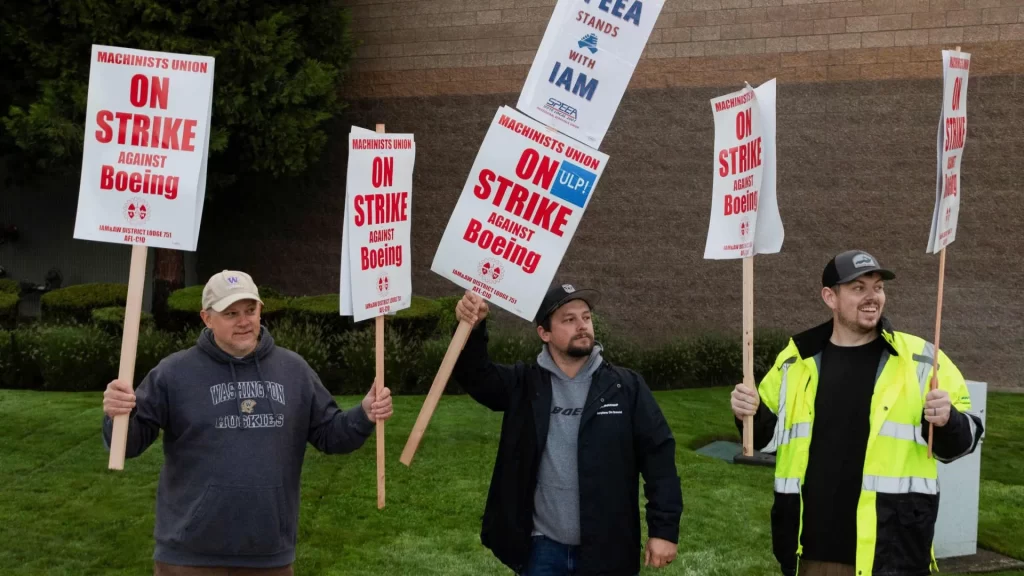Boeing warns of job losses and cuts spending after strike
2 min read

Boeing is taking urgent financial measures, including spending cuts and potential layoffs, as it confronts a strike involving over 30,000 workers in the U.S. The company has announced a hiring freeze, significant reductions in spending with suppliers, and a ban on non-essential travel, including first-class and business-class flights for senior executives. These steps are intended to conserve cash while the strike continues, which executives warn could exacerbate the company’s already fragile financial situation.
In a letter to employees, Chief Financial Officer Brian West described the current period as challenging and emphasized the need for action to preserve the company’s finances. “Our business is in a difficult period,” West stated. “This strike jeopardizes our recovery in a significant way, and we must take necessary actions to preserve cash and safeguard our shared future.”
The strike commenced on Friday following a rejection by workers in Washington State and Oregon of a proposed four-year contract. The offer included a 25% pay increase over four years and various improvements to working conditions. Despite being described by Boeing as a “historic” proposal and receiving a recommendation from union leaders, the contract was overwhelmingly rejected by employees.
Negotiations are set to resume on Tuesday, according to union representatives. In the meantime, the strike has disrupted production lines for the 737 Max, 777, and 767 freighter models. Boeing has responded by requesting suppliers to stop shipments of parts for these aircraft, suspending non-essential capital expenditures, and halting spending on consultants.
The company, which has a workforce of over 170,000, primarily based in the U.S., is also contemplating temporary furloughs for many of its employees, managers, and executives in the upcoming weeks. Boeing has stated that the full impact of the strike will depend on its duration, but analysts warn that a prolonged stoppage could result in billions of dollars in losses for both Boeing and its suppliers.
The last major strike at Boeing in 2008 lasted approximately eight weeks. Major credit rating agencies have indicated that the ongoing strike could lead to a downgrade of Boeing’s credit rating, potentially increasing the cost of borrowing for the company.
Boeing has been grappling with significant financial challenges, including historic losses and production slowdowns related to quality control issues. The company is also dealing with a separate financial obligation: it has agreed to pay $150 million to Brazilian aircraft manufacturer Embraer. This settlement relates to Boeing’s decision to abandon merger talks with Embraer in 2020.
As Boeing navigates these turbulent times, its immediate focus will be on managing the strike’s impact and stabilizing its financial situation. The company’s next steps, including the resolution of the strike and its broader financial strategies, will be crucial in determining its ability to recover and move forward from this challenging period.